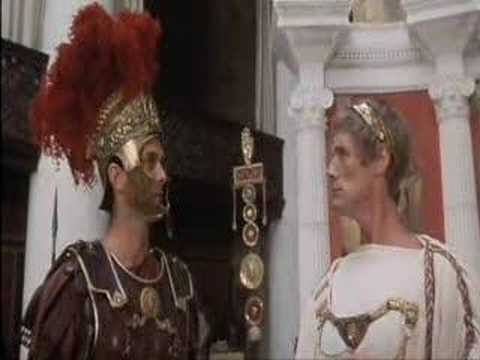The young Pope John XII died as he lived: Fornicating

This week’s entry: Pope John XII
What it’s about: Perhaps not The Young Pope, but certainly a young pope. Octavianus of Spoleto was somewhere between the ages of 17 to 24, depending on which version of events you believe, when he ascended to the papacy. Perhaps owing to his youth, or perhaps because he was granted the office due to political maneuverings and not any particular show of holiness, “his pontificate became infamous for the alleged depravity and worldliness with which he conducted it.”
Biggest controversy: There are two conflicting stories of Octavianus’ birth, each scandalous in their own way. He was definitely the son of Alberic II of Spoleto, who was effectively the secular ruler of the Papal States. His mother may have been an unnamed mistress of Alberic’s who gave birth to him in 930. Or it could have been Alberic’s wife (also his stepsister—Game Of Thrones has nothing on the Romans), Alda of Vienne, seven years later.
In either case, Octavianus entered the church, and his father used his influence to see to it that his son would succeed Pope Agapetus II one day. Within the span of a year, both Alberic and Agapetus died, and Octavianus succeeded them both. So depending on which story you believe, both the secular and religious ruler of the papacy was either a 25-year-old bastard or an 18-year-old who was suddenly the most powerful teenager in Christendom.
Strangest fact: There is a long list of grievances against John XII, and it includes ordaining a 10-year-old as a bishop (this was part of a larger claim that he had been selling off titles within the church) and ordaining a deacon in a horse stable. He was accused of “fornicating with” his father’s mistress (not the same one who may have been his mother, presumably), his own niece, and several widows, and “made the sacred palace into a whorehouse.” The same account claims he blinded his confessor and then killed him, and castrated a subdeacon before also killing him. Even the most lenient accounts acknowledge he was far better suited to the life of a secular ruler than that of pontiff, being as he was “devoted to hunting, hawking, gaming, and wine.”
Thing we were happiest to learn: John XII quickly made a powerful ally in Otto I, king of Germany and future Holy Roman Emperor. As prince of Rome, Octavianus lacked his father’s experience at keeping enemies at bay, and other Italian lords attempted to home in on the papacy’s territory. But as Pope John, he was able to recruit Otto to come to the church’s aid, crowning him Holy Roman Emperor (a title that had been vacant for 40 years) in exchange for protection. The Papal States hadn’t had such protection in a century, so it represented a diplomatic coup.
Thing we were unhappiest to learn: John XII just as quickly made a powerful enemy of Otto I. He didn’t heed Otto’s advice to “give up his worldly and sensual lifestyle” and began to fear the power that he himself had given the new emperor. He sent envoys to the Byzantine Empire, hoping for an alliance against Otto should that relationship sour. It soured when John’s envoys were captured by Otto, who immediately learned of the duplicitous pope’s plans. Otto, who had only recently sworn to defend and protect Rome, besieged the city in 963. Pope John XII appeared in armor, leading troops to defend the city, driving Otto’s army back across the Tiber River. But he quickly realized he was outmatched and absconded with the papal treasury.
Also noteworthy: Things got messier after that. John threatened to excommunicate anyone who tried to oust him, but Otto and a council of nobles “uncanonically deposed John XII,” replacing him with Pope Leo VIII. Romans who supported John revolted, but were swiftly put down by Otto. But as soon as Otto left the city, John returned with a large enough force that Pope Leo fled. John declared Leo illegitimate, mutilated some of his enemies, as you do, and resumed his position of power. He sent a bishop to negotiate with Otto, but before anything could be resolved, John died “whilst enjoying an adulterous sexual encounter.” In one version of events, he had a stroke, and in one he was killed by the woman’s husband. Depending on which version of earlier events you believe, he was only 27 or 34. He was succeeded by Pope Benedict V, but after a month and a day, Leo VIII came back for a second run at the Holy See, ousting Benedict. After a first stint of only two months, Leo’s second papacy lasted until his death, a whole eight months later.
Best link to elsewhere on Wikipedia: Anyone interested in more papal scandal should proceed to the list of sexually active popes, which compiles popes “known to, or suspected of” sleeping with men or women, either before or during their papacy. In fairness to the office, priests weren’t required to be celibate until the Second Lateran Council of 1139. Six popes were married, including St. Peter, whose mother-in-law is mentioned in the Gospels.
Further down the Wormhole: Octavianus was only the third pope to change his name upon assuming the office, though he would have called himself Ioannes, the Latin form of John. The Latin language died out centuries ago, but is still widely used by the scientific community to categorize organisms using systematic names. For example, Dromaius novaehollandiae is the Latin name for the emu, the second-largest bird still in existence (only the ostrich is bigger), and the catalyst for what became known in Australia as the Emu War. We’ll remember the veterans of that conflict next week.